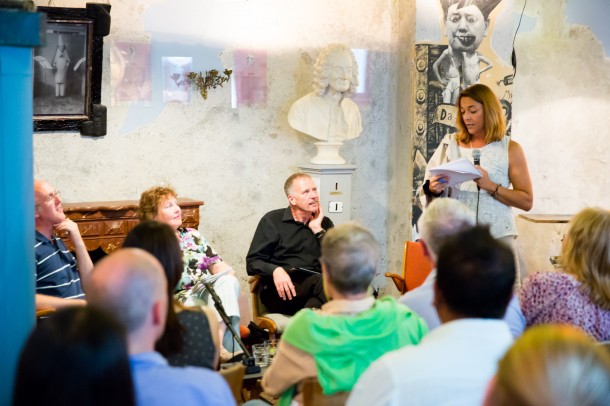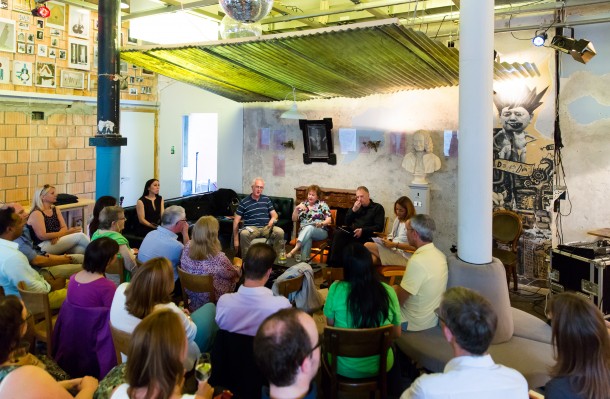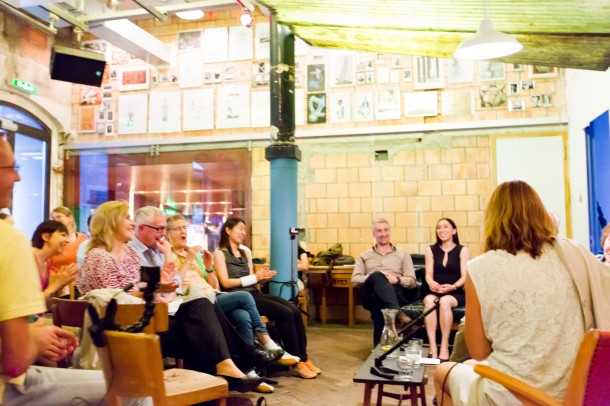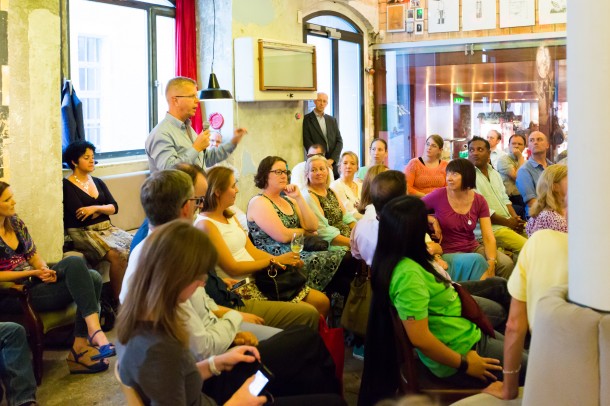Free Speech With Or Without ‘Buts’?
Ask anyone and they will say without hesitation that they believe in the importance of freedom of speech. Press anyone and they will add a ‘but’…but not for Fascists, racists, homophobes, hate preachers, Islamic extremists …the list goes on and on. Few will argue in a principled way for ‘Free Speech: No Ifs, No Buts!’
Whatever happened to freedom of speech?
Free speech was once seen as a foundational value and one not to be limited even if it caused great offence. Offending the powerful and the privileged was unavoidable if you sought to challenge the status quo and bring about social change and, other than the establishment, no one cared.
Today those who once sought radical social change, the political left, trade unions, feminists, gays and environmentalists are seeking to censor, ban and ‘No Platform’ those speakers whose views they disagree with. Minority groups now ask the state and other institutions to censor views they find offensive and hurtful.
A new culture of sensitivity or conformism?
A culture of inoffensiveness in order to protect the vulnerable seems to be dominant in the first decades of the 21st century. Society may simply have become more caring, sensitive and inclusive. It may simply be more willing to tolerate restrictions on some speech for the greater social good because that is what it takes to live peacefully in a modern multicultural society.
An alternative perspective would be that the dominant ideas today are taken from what were once radical ideas and conforming to them is now enforced by legal means, with the support of former radicals. That is to say free thinking is no longer allowed in the public sphere, not even for the media, academics, comedians and other artists.
What’s your stance on “Free speech with or without ‘Buts’?”
Recommended reading:
-
Anti-racism law facing resistance from the right
Swiss Info
Exposing a dark side of Swiss society to justice or stifling free speech unnecessarily? Twenty years after Swiss voters approved the introduction of anti-racism legislation, the law is facing fresh resistance. A yodeling festival, a cafe, an architect’s website – racist abuse and discrimination can appear in the most innocuous of places. When the incident injures the human dignity of an individual or group, or crosses the line into incitement to hatred or propaganda, it is prosecutable. -
Freedom Manifesto
Spiked-online
Freedom of speech is the cornerstone of a democratic society. It is the most important of all freedoms. It is the foundational freedom upon which every other right we enjoy - from the right to vote to the right to protest - is built. Without the freedom to think, write, publish, depict and debate as we see fit, all our political and social rights become meaningless. -
The Case for Censoring Hate Speech
Huffington Post
The negative impacts of hate speech cannot be mitigated by the responses of third-party observers, as hate speech aims at two goals. First, it is an attempt to tell bigots that they are not alone. Frank Collins -- the neo-Nazi prosecuted in National Socialist Party of America v Skokie (1977) -- said, "We want to reach the good people, get the fierce anti-Semites who have to live among the Jews to come out of the woodwork and stand up for themselves. The second purpose of hate speech is to intimidate the targeted minority, leading them to question whether their dignity and social status is secure. -
Turkish politician fined over genocide denial
Swiss-Info
A Swiss district court has found a Turkish politician, Doğu Perinçek, guilty of racial discrimination for denying the 1915 Armenian massacre was genocide.
The court in Lausanne agreed with the prosecutor's demand and handed Perinçek a suspended fine of SFr9,000 ($7,336) as well as a one-off financial penalty of SFr3,000. -
Well-ordered societies need to limit free speech?
American Renaissance
Professor Waldron declares that “we are diverse in our ethnicity, our race, our appearance, and our religions, and we are embarked on a grand experiment of living and working together despite these sorts of differences.” Western societies are determined to let in every sort of person imaginable... feel respected and equal in every way. “Inclusiveness” is something “that our society sponsors and that it is committed to.” -
On the importance of the right to offend
Kennan Malik
There is a right to free speech. There is no right not to be offended. People have the right to say what they wish, short of inciting violence, however offensive others may find it. Others have the right not to listen or to watch. Nobody has the right to be listened to. And nobody has the right not to be offended. -
Belgium bans a wide range of sexist speech
Washington Post
For the purposes of this Act, the concept of sexism will be understood to mean any gesture or act that, in the circumstances of Article 444 of the Penal Code,* is evidently intended to express contempt for a person because of his gender, or that regards them as inferior, or reduces them to their sexual dimension, and which has the effect of violating someone’s dignity. Anyone found guilty of [such conduct] will be punished with a prison sentence of one month to one year, and a fine …, or one of these penalties alone…. -
International Law
ARTICLE 19
Generally speaking, the right to freedom of expression extends to unpopular ideas and statements which “shock, offend or disturb.” Nevertheless, a number of human rights treaties, including the ICCPR, not only permit states to prohibit hate speech but actually require them to do so. In addition, one particular form of hate speech – incitement to genocide – is one of only a few types of acts recognised as a crime under international law, akin to war crimes and crimes against humanity. -
Swiss ban on animal rights adverts overturned
Strasbourg Observers
There was the 2001 VgT v. Switzerland judgment, which was near identical to Animal Defenders, where a unanimous Second Section of the Court held that the Swiss ban on political advertising, as applied to an animal rights group wishing to broadcast an issue-advertisement, violated Article 10. The Court in VgT reviewed the usual rationales for political advertising bans, namely (a) .... -
Where Do We Draw the Line on Religious Abuse?
Huffington Post
Outright bans on religious apparel are a serious limit on free speech and expression, those who support and wear religious clothing must also respect the rights of others to dress and live as they please, and should not be permitted to force their ideology or customs on others, even if they are family members. The problem with respecting the rights of religious individuals to practice their faith as they see fit while defending the rights of others to live free from religious compulsion is that.... -
Putin Signs Law Banning Curse Words in Arts and Media
Time Magazine
Russia will levy steep fines, as high as $1,400 for organizations and $70 for individual offenders, against potty-mouthed reporters, writers and artists. Repeat offenders could face steeper fines and a 3-month suspension of business....
A panel of obscenity experts will define the finer points of the law, deciding which words could damage the Kremlin’s stated goal of “protecting and developing language culture.”











